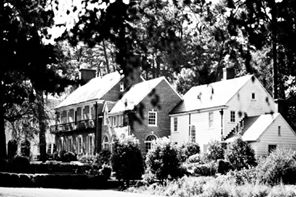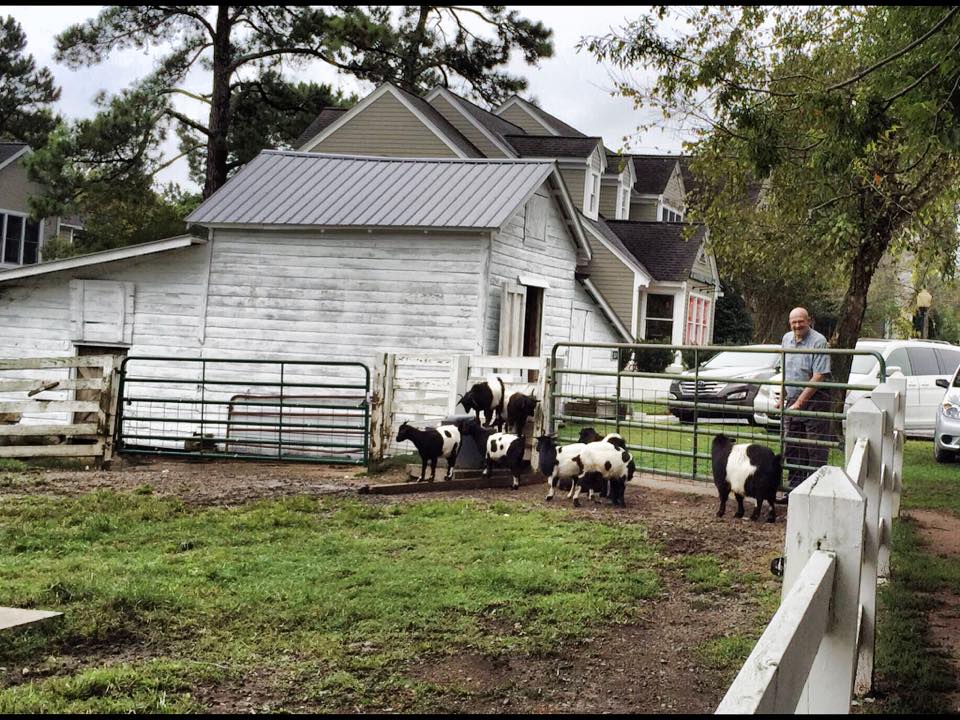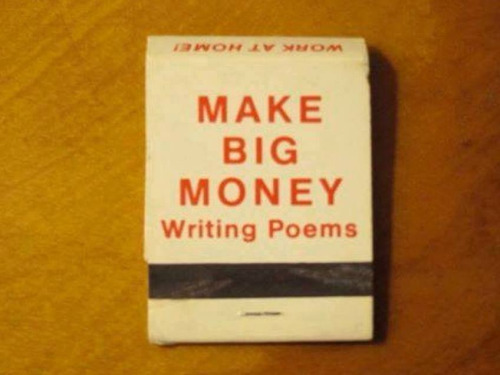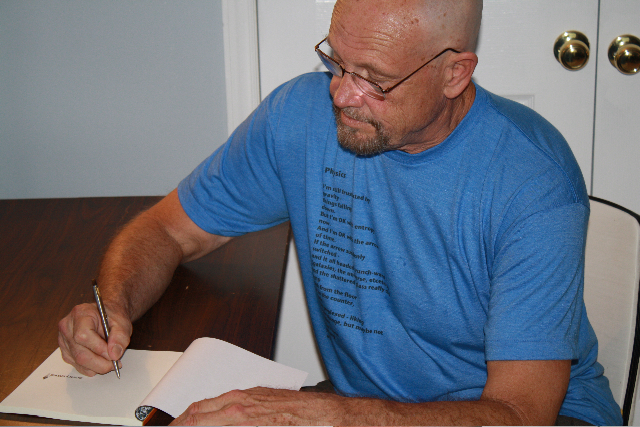
About Cal
After a 35 year absence I kept my promise to myself and returned to writing poems upon retirement. I started writing poems with tropes from science, particularly physics. I am working on stories of my life and times, as it sometimes seems every writer is today—wondering how we got to the place where we are. For me it was a surprise. Life is full of surprises, but never the way it is now. My only degree is in English (Yale '72).
My early influences in college were all the poets in Donald Allen's New American Poetry, and some who weren't, but most notably Charles Olson, Robert Creeley, and the Black Mountain College poets of western North Carolina, years before ever dreaming I'd live in NC.
As a child of the Space Age, my interest in science began at about age 7, as you can see at "Juvenilia" in the Poems section with my first published poem, “On Beyond Pluto,” which the town newspaper published. It was written on a snow day while looking out the window on a swirling field of white powder in Livingston, NJ. That same newspaper, The West Essex Tribune, published a story about me along with another poem of mine, “Custodian,” in March ’19. I have an image file of it which I’ll put in the section of this website called “Community.”
I had several brilliant friends at Livingston High School, especially in the cutting edge knowledge of the "new" physics so far beyond me that by age 16 I felt I'd hit my ceiling on science, and didn't study it again until a beginning level History of Science course in my last semester at Yale, taught by a world-renowned professor. I was fascinated by the entire scope of science.
After college I realized how little I really knew, so I kept reading in science (especially physics, astrophysics, chaos theory, evolution, and related subjects), in history, and some novels: Thomas Hardy, and all the works of both Thomas Mann and later Jack Kerouac, whom my professors didn't think worthy of serious study, but I found that I loved his work and his story. My first book, Mystical Fictions, has a couple of poems about Kerouac.
The picture at top shows me admiring a championship medal in discus. I didn't take up discus and shot until the same year I put aside academic science, and in all seriousness, those sports events kept the idea of physics in my mind in a visceral way till I stopped competing at age 45. As one of the old truck drivers who worked for me in my career in transportation taught me, the most important thing to know is: "Gravity always works. Make it work for you.”
If you like the poems you see here please go to mysticalfictions.bigcartel.com to buy the book, which has a lot more that are like these. Meanwhile, happy listening, reading, and writing!
Before the COVID pandemic, the Raleigh-Durham-Chapel Hill area in North Carolina had numerous venues for poetry readings and open mics; some came and went, some lasted for years, and in most of them a common sight was the poet Cal Nordt.
Tall and lanky, he would rise slowly when his turn came, walk with his cane to the front of the room, and deliberately read in his distinctive, sometimes crackling baritone. For several years I was a co-host of one of these readings, and that’s how I met Cal—a regular attendee, an attentive listener, an interesting poetic voice. But, even before COVID, serious health issues were putting an end to his participation in the readings. But in a feat of perseverance and hope, Cal has emerged from these health issues and the disruptions of COVID with his first collection of poems, Mystical Fictions.
Mystical Fictions contains poems distilled from a lifetime of writing, beginning with the honors senior thesis written at Yale under the direction of Edward Mendelson. The collection has a wide range of themes and a satisfying mix of tones. What I remember best from Cal's public readings are the scientifically-informed short poems—philosophically pessimistic but comically, wittily cheerful. The poems that most beguile me now are the portraits of working-class men—a carpenter and a machine operator; a truck driver with “his nicotine caffeine black-toothed crooked smile;” a policeman who wishes he had drowned while saving a girl from drowning; a mob boss with a thick Jersey Shore accent; the anthropologist from Ethiopia who clerks at a convenience store. But the poems with the most punch mix terror with intense self-consciousness—a panic attack, a car wreck, the disorientation of seeing too far in or too far out: “if you / look too close you see a stream of 0’s and 1’s, too far / back and it’s a blue and white circle filled with invisible / lines of infinite length.”
What a joy it is for me to read these poems!
J. S. Absher
Follow this link to purchase your copy of Mystical Fictions: mysticalfictions.bigcartel.com
The late Tony Hoagland claimed that the poetic voice is the “distinctive linguistic presentation of an individual speaker.”
Cal Nordt’s Mystical Fictions operates within this paradigm of “well-wroughtness.” Nordt’s voice is often learned, ironic, surprising, and wry. His is a classically literate voice displayed in deft and sometimes dead-pan replies to the VIP’s of the Western canon. Nordt’s poems want to remind us of the fragility of ourconceptions, our duplicitous self-awareness, and our penchant for self-delusion. In short,Mystical Fictions discloses “Our shadow / world in the smoky firelight of this cave.”
Maria Rouphail, the author of Apertures (New Women’s Voices series, Finishing Line Press), Second Skin (Main Street Rag Books), and the forthcoming All the Way to China (Finishing Line Press).
Must we be enslaved by physics? Victim of relentless entropy?
Perhaps poetry can snatch Time and spin her arrow; the poems of Cal Nordt’s Mystical Fictions make a brave effort. Time...a tablet of blank pages we draw on that turn one way, while memory turns the other. Cal is the time traveler poet—pausing time’s flow to notice the now, buffing past’s mirror to reveal reflections, entering the future fearless. Cal insists we accept deep reality but fills it with wit and sharp images that take us deeper yet. We share life, his life, as we enter these pages and discover life moves...an instant’s shared sense...touch of a hand then let go.
Bill Griffin, Verse and Image, GriffinPoetry.com
Mystical Fictions is an epistemological foray into What?
Cal Nordt offers music to charm unknowns: “I have nothing to say.” Politicians, poets, musicians, writers—all—infinity plus-plus. A Second Coming brims chaos and stew; then quietude eases rain down until the “storm pipe drips in time.” The wet grass offers “happy squirrel” swirls. A robin weeps. “Nothing to say and saying it.” Grass loves sun. Philosophical words seek music to hold mysteries things make up.
Shelby Stephenson, author of Shelby’s Lady: The Hog Poems (Fernwood Press) and Praises (Main Street Rag Publishing Company). He served as poet laureate of North Carolina from 2015–2018.




